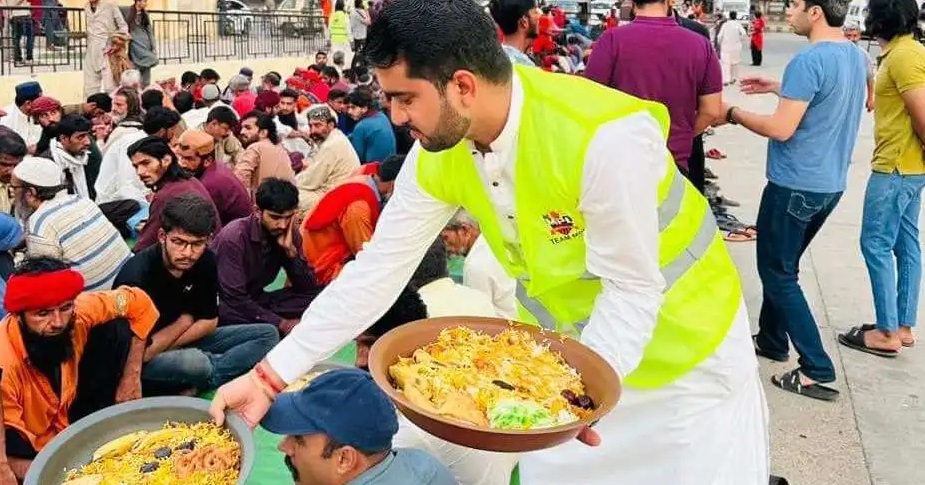Hindus provide iftar meals in Pakistan
On the cusp of sunset, the sound of rumbling trains in the distance faded as they came to a standstill at Cantonment Railway Station in Pakistan’s port city of Karachi on April 9.
Apr 19, 2024

KARACHI: On the cusp of sunset, the sound of rumbling trains in the distance faded as they came to a standstill at Cantonment Railway Station in Pakistan’s port city of Karachi on April 9.
A group of volunteers rushed to hand out large jugs of ice-cold Rooh Afza, a fruity drink made of squash, and platters of aromatic briyani to hundreds of Muslims as muezzins in nearby mosques announced through their sound systems it was time to break their Ramadan fast for the day.
From April 1-9, this was a regular scene when a group of young Hindus from the Maheshwari community started arranging iftar (the fast-breaking meal) for Muslims during the Islamic holy month.
“We were in a hurry to break the fast as we had missed our train and had no idea who had arranged it,” Ataullah Rehmat, who ate at the iftar event with his wife and child, said.
“But we were really happy to see that the Maheshwari group organised it. Such acts help build better understanding between people of the two faiths.”
The Maheshwaris hail from the desert region of Tharparkar in Sindh province and are known for their community mobilisation initiatives.
The organisers of the iftar drive, the Maheshwari Premier League, started their initiatives by organising cricket tournaments in Sindh a few years ago and later conducted educational and healthcare campaigns.
Bhevish Kumar, one of the organisers of the event, said the idea behind the drive was to promote interfaith harmony.
“We initiated it [the iftar drive] with a clear mindset to promote interfaith harmony,” Kumar said on April 9. “Once such a message starts becoming a trend then we can see an inclusive and plural Pakistan.”
Such acts of harmony in the country, however, come against the backdrop of persecution of religious and ethnic minorities including discrimination, blasphemy allegations, fines, death and life sentences.
Kumar said while everyone was welcome to have food at the iftar, the initiative targeted people specifically who could not break their fast on time as they were waiting for their trains.
“So that’s why we arranged it at the railway station where there are coolies [porters], where there are travellers and tourists,” Kumar explained. “It actually benefits those who are fasting.”
He said the group’s iftar drive fed an estimated 5,000 people from April 1-9, adding that on some days, over 700 people showed up at the railway station to break their fasts.
And since the Maheshwaris are primarily vegetarian, the iftar menu consisted of vegetable briyani, potato samosas, jalebi snacks, the popular Rooh Afza drink, fruits and dates.
Kumar said they funded the iftar meals from their own pockets and individual donations.
“There are people in our team, including me, who are earning well through our jobs,” Kumar said. “So, we contributed ourselves and also had help from some students who contributed from their pocket money and when we were still short, we had help from the elders in our community.” -- ucanews.com







Total Comments:0